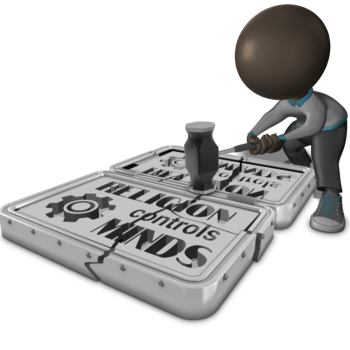On June 29, the Supreme Court issued its decision on the constitutionality of "Obamacare"—more formally known as the Patient Protection and Affordable Care Act (or ACA)—and people have been predictably outraged or stoked by the outcome. It is, variously, a trampling of the Declaration of Independence (thank you, Forbes), or a game-changing example of statesmanship by Chief Justice John Roberts (according to Thomas Friedman), or a long-overdue political response to human need (National Council of Churches).
Many of us—Christian, Muslim, Jewish, or None of the Above—think of health care as a moral issue, not just a political one. The effect on people's lives and quality of life makes it so. As Susan J. Stabile wrote over at The Gospel Coalition,
Forty-five thousand Americans die each year because they lack access to health care. Fifty-three million Americans lack health insurance. In the richest nation in the world, the fact that people die because they cannot afford health care is unconscionable. That proposition itself is easy enough to accept. How to address the problem has always been the rub.
But the rub seems to come for different people in different places. For some, the rub of Obamacare seems to come from their perceptions of expanding government and contracting freedom, as summed up by my Patheos colleague Timothy Dalrymple. For others, as represented by Patheos' Bill Blankshaen, the policy binds because the intrusion of government seems to rule out faith-based solutions. Others still are chafed by the thought that no one should be forced to purchase a product against their will—even if it's a product we all need, like health insurance. Freedom, freedom, freedom.
These are all strong arguments about how Obamacare may rub us wrong from the secular standpoint of individual freedoms and individual rights. But where does this policy rub us right or wrong as people of faith? As I argued throughout my book Faithful Citizenship, many of us respond to moral issues primarily through our political filters. Thus, the Supreme Court decision is a victory if I'm a Democrat, a disaster if I'm a Republican.
And this is absolutely the wrong way to think about moral issues that are also political issues—which is to say, almost every issue that matters.
My Patheos colleague Nadia Bolz-Weber was absolutely right to note that we don't—and shouldn't—require our fellow Christians to agree with us politically. The problem is that it's all too easy to decide our feelings about the ACA on the basis of our political or secular beliefs. What do the gospels and the Christian tradition tells us about the problem of health care?
How might Christians have a conversation about Obamacare that isn't simply about political talking points and dueling statistics?
In Faithful Citizenship, I argued for the importance of identifying what we're really talking about when we talk about politics, and discussed how we might make ethical decisions from our Christian core, not our secular culture. We often reason from the standpoint of freedoms and liberties, important American ideals, but they're not necessarily preeminent for us as people of faith. While certainly we extrapolate an absolute value for each human being by the way Jesus loved and valued everyone, these rights and freedoms are book-ended for people of faith by responsibilities.
Liberty is always balanced, in the life of Jesus, against the needs of others, and his actions throughout the gospels show a continuing pattern: Jesus ministers to others; he goes up on a mountain alone or with close friends and takes care of himself; he comes back down and ministers to others; he takes—or tries to take—some time for himself. Jesus does have some boundaries—notice how he perceives when someone touches the hem of his garment seeking healing in Mark 5—but he also is on Earth intentionally doing selfless things on behalf of those who need his help: healing, feeding, teaching, casting out unclean spirits.





